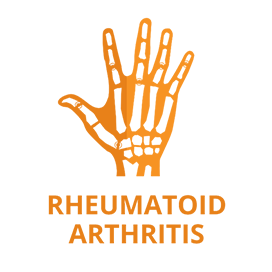
Arthritis can come in many shapes and forms. One of the most common forms of arthritis is rheumatoid arthritis. This chronic condition is an autoimmune disorder where the body is attacking itself. There are about 1.3 million people living with rheumatoid arthritis just in the United States. The condition disproportionately affects women; with more than 75% of patients being women.
Rheumatoid arthritis can severely impact a patient’s quality of life and there is often little they can do to prevent the condition. The current level of treatments only manage the symptoms of rheumatoid arthritis. Many patients with rheumatoid arthritis are tired of using conventional treatment options that are ineffective. These patients have looked into alternative treatment options.
One of the more promising treatment methods that is rapidly gaining traction is stem cell therapy. Stem cells have the ability to prevent an over exaggerated immune system response that causes rheumatoid arthritis. It may be helpful to get a bit more background information about rheumatoid arthritis, to understand how stem cells can help.
What Is Rheumatoid Arthritis?
Rheumatoid arthritis is a chronic, progressive autoimmune disorder that typically affects the joints of the body. The cartilage in joints is broken down through inflammation, until there is nothing left. Then the bones will rub against each other, which causes further inflammation, pain, and damage. While joints are most commonly affected in rheumatoid arthritis, the condition can also affect the skin, eyes, lungs, heart, and blood vessels.
Osteoarthritis is characterized by wear-and-tear damage, while rheumatoid arthritis affects the lining of the joints. What is interesting about rheumatoid arthritis is that if one joint is affected on the right side of the body, the same joint will be affected on the left side of the body. Severe rheumatoid arthritis can actually cause physical disabilities in patients. Joint stiffness is typically the worst in the morning, but it can improve when a patient begins moving their joints to get blood flowing through those joints.
The immune system attacks healthy cells and tissues by mistake. The lining in the joints may be misidentified as pathogens or intruders in the body where the immune system will take action to defend itself. The immune system is an extremely complicated system that the medical community does not fully understand. Researchers struggled to understand the underlying mechanisms of the immune system for decades, but there have been strides in research.
Why Does The Immune System Attack The Body?
There are a few theories surrounding rheumatoid arthritis and the role that the immune system plays in the disease. Some researchers believe that two chemicals, tumor necrosis factor (TNF) and interleukin-1, trigger the immune system to attack various parts of the body. The immune system ends up attacking the tissue surrounding the joints, which leads the thin layers of cells that cover the joints to become inflamed and sore. When the thin layer of cells become damaged, they release a number of chemicals that can damage the bones, cartilage, tendons, and ligaments. Some research shows that memory Th17 and memory regulatory T cells are believed to be directly responsible for the immune system response for rheumatoid arthritis.
Rheumatoid Arthritis Trigger
Many patients have described a ‘trigger’ that led to the development of their rheumatoid arthritis. The trigger is usually a specific event, such as a pregnancy, trauma (physical or mental), or illness. These triggers create a response from the body that results in the production of abnormal proteins called citrullinated peptides.
These rheumatoid arthritis triggers are the least understood part of this condition. An immune system response from a disease or a stressful event could be extreme. The immune system may then continue to attack the joint lining for months and years after the event. Patients are encouraged to note what triggers flare ups and take steps to avoid those situations.
Some triggers are unavoidable. When a trigger causes a flare up, patients can take some steps in order to mitigate the long term damage of rheumatoid arthritis. The medical community has developed treatments for patients
Current Treatments For Rheumatoid Arthritis
Medication
There are a few medications that can help relieve patient symptoms during a rheumatoid arthritis flare up.
- Disease-modifying antirheumatic drugs (DMARDs): This type of medication attempts to alter the immune system’s response. There are potential side effects, such as liver damage, bone marrow suppression and severe lung infections.
- Biologics: This type of medication is similar to DMARDs, but they do not block the entire immune system’s response. Instead, they provide a targeted response to reduce inflammation.
- Steroids: Steroids are a common treatment method when dealing with inflammation and pain. This type of medication is only a short-term solution. If a patient is on steroids long term then the symptoms of rheumatoid arthritis will only increase in severity as steroids can destroy joint cartilage.
Surgery
In cases of severe rheumatoid arthritis, surgery may be required if a patient’s joints become too damaged. There are a few surgical options depending on the severity of the joint damage:
- A synovectomy is performed to remove the inflamed tissue lining of the joint that the immune system is attacking.
- A joint replacement is performed when the joint is damaged beyond repair. In this case the joint is replaced by a prosthesis that is typically made of plastic and/or metal.
- Joint fusion is performed to help stabilize a joint that is causing severe pain. This procedure is typically only performed when joint replacement is not an option.
Surgery should always be the last resort when it comes to treatment, as it carries several inherent risks.
Lifestyle Changes
For many autoimmune disorders, medical practitioners will recommend a lifestyle change in order to mitigate the effects of rheumatoid arthritis.
Exercise
Exercise the right muscle groups can help strengthen the muscles surrounding the inflamed joints. Exercise can also improve joint mobility and increase the range of motion. Yoga is highly recommended as it can greatly improve flexibility, while strengthening key muscle groups.
Resting
Patients with rheumatoid arthritis are often told to get enough sleep and rest each night. Sleeping and rest can help reduce inflammation and the associated symptoms. Meditation and controlled breathing techniques can also help the body relax.
Anti-Inflammatory Diet
A change in diet can prevent rheumatoid arthritis flare ups. Patients that switch to a rheumatoid arthritis diet typically eat a lot of foods that are rich in omega-3 fatty acids. There are a number of foods that are helpful, such as fish oil, walnuts, soybeans, flax seeds, and more. Some patients do have trigger foods that bring on bouts of rheumatoid arthritis and should try to avoid them.
Sadly, none of these treatments are cures for rheumatoid arthritis. That is why researchers are actively looking into alternative therapies. Stem cell research is showcasing the power of stem cells and how they can treat patients with rheumatoid arthritis.
Stem Cell Therapy For Rheumatoid Arthritis
Researchers have been looking for alternative therapies that can reduce the immune response in rheumatoid arthritis patients. Stem cells are an attractive treatment option for rheumatoid arthritis for a number of reasons.
Stem cells have the ability to reduce inflammation throughout the body. Inflammation in rheumatoid arthritis is often the result of the immune system response. It has been well documented that stem cells are able to regulate the immune system’s response. A number of studies have shown that stem cells have an immunoregulatory ability. Reducing the immune system’s response should reduce the severity of rheumatoid arthritis symptoms.
Even when patients slow down or stop rheumatoid arthritis, many patients still deal with damaged cartilage and joints. Stem cell therapy could help patients repair and replace the damaged tissues and cells. A number of regenerative growth factors are released by stem cells, which encourages the body to form new, healthy cells. A patient could have practically new joints and cartilage
Another reason that stem cells are promising, besides efficacy, is safety. If a treatment works, but has too many side effects, then it will not be able to be used in most cases. Thankfully, that is not the case for stem cell therapy. Stem cells have been shown to be safe in a number of clinical trials for different conditions and diseases. The combination of these properties pushed researchers to begin studying the relationship between stem cells and rheumatoid arthritis.
Before we get into the evidence, let’s get a little more of an understanding of how stem cells can regulate the immune system’s response.
Stem Cells And The Immune System
Mesenchymal stem cells have the ability to alter the frequency and function of memory lymphocytes, which may be responsible for rheumatoid arthritis, and promote cell generation. Some researchers believe that stem cells would restore the balance between proinflammatory and anti-inflammatory memory T-cells that have become rogue when a patient develops rheumatoid arthritis. Stem cells would be able to prevent proinflammatory T-cells from continuing to differentiate, while encouraging the body to create regulatory T-cells.
The overall result would be less inflammatory t-cells creating inflammation in the joints that are affected by rheumatoid arthritis. The regulatory t-cells will be able to create an environment that is helpful for healing. Stem cells may be able to create both of these effects and encourage the body to repair the joints.
The clinical evidence that stem cell therapy is effective for patients with rheumatoid arthritis is growing each year.
Evidence Of Stem Cell Therapy For Rheumatoid Arthritis
Researchers have been steadily creating a pile of evidence that showcases the power of stem cell therapy for rheumatoid arthritis.
A 2013 study looked to evaluate the safety and efficacy of stem cell therapy for rheumatoid arthritis. 172 patients were split up into two groups. One group was given just disease-modifying anti-rheumatic drugs, while the other group received disease-modifying anti-rheumatic drugs and a stem cell intravenous injection. The goal of the study was to first see if the treatment was safe and then to see if it was effective.
There were no serious side effects for the group of patients that received the stem cell intravenous injection. The inflammatory markers in the body decreased, while the regulatory T-cells increased in the group that received stem cell therapy. The results were apparent in the patients. All of the patients that received stem cells improved their activity disease scores. The therapeutic effects from the treatment lasted three to six after they received the injections. Patients could continue to receive stem cell treatments to improve their symptoms.
Another 2019 study took that 2013 study a step further by evaluating patients who had received stem cell therapy over a longer period of time. 64 patients aged 18-64 were treated with 40 mL of umbilical cord mesenchymal stem cells via an intravenous injection. Patients were evaluated based on certain biomarkers and activity scores.
Patients were evaluated one and three years after they received the stem cell treatment. The patients that received the therapy showed no abnormalities in their blood routine, liver and kidney function, and immunoglobulin. The patients also improved their activity disease scores. This further showcases that stem cells can be effective long term for patients with rheumatoid arthritis.
There are many other clinical trials that are currently taking place to continue to ensure stem cells are effective in fighting this condition. All of the data continues to showcase that stem cells are a powerful treatment for rheumatoid arthritis. Many patients do not want to wait and are frustrated by conventional medicine. That is why many of them decide to receive stem cell therapy. They often have to travel outside of the United States in order to receive the best treatment.
The BioXcellerator team has treated many patients with rheumatoid arthritis and we have seen incredible results. We only recommend stem cell therapy in cases where we know it will be effective. Our team is dedicated to providing the best possible care for our patients.
Golden Cells
Determining what is a good stem cell and what is a bad stem cell has been highly debated for a number of years. There are stem cell clinics that utilize subpar stem cells in their therapies. This creates treatments that are not equal. One stem cell clinic may be using stem cells that are extremely potent, while another may be using stem cells that are not potent whatsoever. BioXcellerator realized this issue, which is exactly why our team created a process to eliminate this issue.
To find the most potent stem cells, the BioXcellerator team knew they had to raise the standards of stem cells above even the most strict international standards and regulations. We created an extremely strict quality control process that will eliminate subpar stem cells. We call the final set of stem cells ‘golden cells.’ ‘Golden cells’ are the next step in the evolution of stem cell treatment. These extremely potent stem cells should be able to improve the treatment of patients with rheumatoid arthritis.
Reach out to your healthcare provider today to learn more about all of your treatment options for rheumatoid arthritis. Many patients never question their medical provider and do not advocate for themselves. They end up sticking with the same treatments that are not providing the results they need. Stem cell therapy could improve your quality of life by reducing your rheumatoid arthritis symptoms. Some patients could even completely recover from the condition with stem cells.

